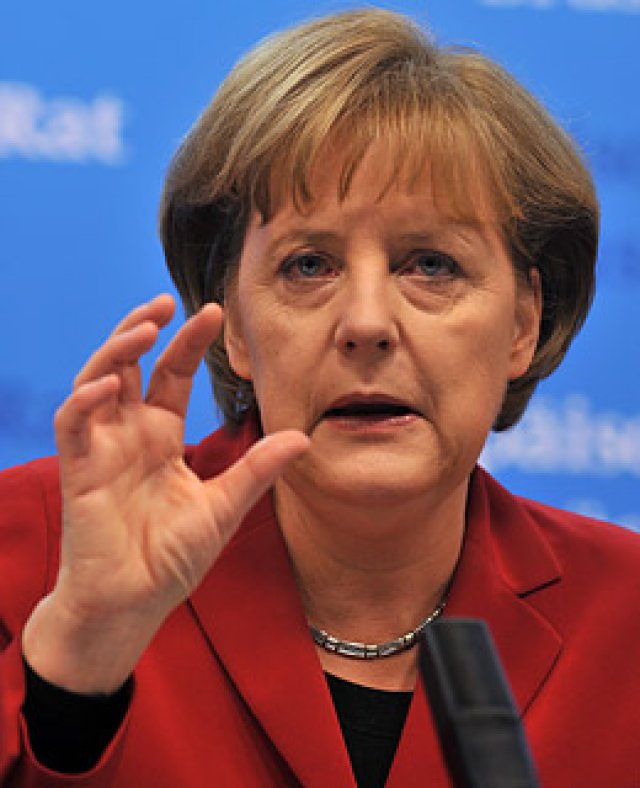
The German parliament met on June 30 to elect the country’s largely symbolic president. What should have been a fairly straightforward affair, however, turned into a political embarrassment for Chancellor Angela Merkel.
The new election was made necessary by the resignation of Horst Koehler on May 31, after a public outcry over his comments suggesting German military involvement in Afghanistan was commercially motivated.
Koehler’s resignation came as Merkel’s governing right-wing coalition was struggling in opinion polls.
Support for Merkel’s Christian Democratic Union (CDU) has dropped to just 32%, while their free-marketeer coalition partners, the Free Democrats (FDP) — who received almost 15% of the vote at the 2009 election — have dropped to barely 4%, the July 4 Angus Reid Global Monitor said.
Popular opposition and protests continue to build against Merkel’s austerity measures, the war in Afghanistan and the economic bail-out of Greece.
To replace Koehler, Merkel proposed Christian Wulff, a conservative former governor of Lower Saxony and a potential rival for Merkel’s leadership of the CDU.
The opposition centre-left Social Democrats (SPD) and Greens proposed an alternate candidate, Joachim Gauck.
Gauck came to fame as a civil rights advocate and dissident in the former East Germany, and for 10 years after German unification he oversaw a state bureau investigating Stasi (East German state security) informants.
Gauck has been criticised, however, for using the inquiry to settle personal scores, and has been accused of destroying thousands of careers — and lives — of innocent East Germans by relying on hearsay and unsubstantiated accusations.
As well as attempting to split the votes of Merkel’s coalition by proposing a popular right-wing candidate, the SPD were also trying to embarrass left-wing party Die Linke, whose origin lies in the former East German ruling party.
Die Linke is now a major force in German politics, and its policies — including a minimum wage, a “rich tax”, an end to the war in Afghanistan and massive cuts in greenhouse gas emissions — have been gaining the votes of many dissatisfied SPD supporters.
Because of his right-wing politics and the fact that the SPD and Greens nominated him without consultation, Die Linke refused to back Gauck. Instead it nominated its own candidate, Lukrezia Jochimsen.
The SPD, the Greens and the media immediately attacked Die Linke, attempting to link its refusal to back Gauck with support for the former East German regime.
The German president is chosen by a joint sitting of both houses of the German parliament and an equal number of representatives from the 16 states. Despite holding a slim majority, however, Merkel’s candidate lost the first vote, with 44 members of the government voting instead for Gauck.
With 126 votes going to Die Linke’s candidate, neither Wulff nor Gauck had the numbers in the first round. The second round repeated the embarrassment for Merkel, this time 29 members of the government voting for Gauck.
In the third round, Die Linke withdrew its candidate, but refused to back the remaining right-wing candidates, calling instead for an abstention but leaving the decision up to its parliamentarians.
If the SPD were hoping that Die Linke would split over the vote, it was sorely disappointed. Of Die Linke’s 124 representatives, only three voted for Gauck while the rest abstained.
The rebel CDU members — having made their point — returned to the fold for the last vote, supporting Wulff.
Despite eventually getting her candidate elected, Merkel emerged weakened — with the vote widely viewed as a vote of no confidence in her leadership. It has fuelled speculation that right-wing CDU heavyweight Roland Koch may challenge for the leadership.